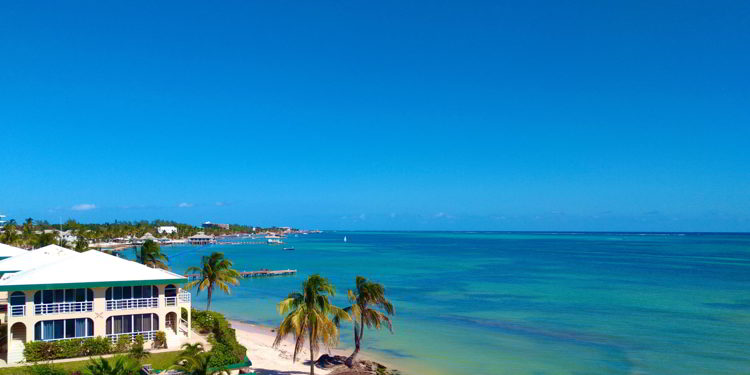As we gear up to launch our 2023 Live And Invest In Belize Conference, taking place in Belize City, Jan. 18–20, we’re revisiting some of most frequently asked questions we receive about life in Belize…
Q: Can I bring my pet with me?
A: Yes. Domesticated pets are allowed to enter Belize when the owner presents a veterinary certificate of health, including a valid rabies vaccination a valid import permit; and a US$25 fee. Your pet will be inspected by the quarantine officer when entering the country.
Q: Should I ship my car?
A: Ordinarily, we recommend against shipping a vehicle with you when you move overseas… In the context of Belize, however, it could make sense. The inventory of vehicles available for sale in this country is limited, and what is available is expensive.
On the other hand, Belize imposes high import duties on vehicles, which can argue against bringing a car with you. Remember, though, residents under the Qualified Retired Persons (QRP) program are exempt from these taxes. We’ll cover residency and the costs associated with bringing a car into Belize, as well as the particulars of qualifying for QRP status at the upcoming conference.
Q: How do I get a driver’s license?
A: You can drive in Belize on your foreign license for three months. Then you’ll need to get a local driver’s license. On it will be a picture of a short old man. This is Tata Duende, who lives in the woods and taunts people passing through, trying to lead them astray. That’s the local legend. Why is Tata Duende on every Belize driver’s license? The Belizean sense of humor, of course…
Again, our experts will walk you through the details associated with applying and qualifying for a driver’s license in Belize step by step.
Q: Can I own a gun?
A: Yes, but understand that gun ownership in this country is a privilege, not a right. Strict gun laws are strictly enforced, and draconian measures apply for anyone found with an unlicensed gun or ammunition.
Q: Is Belize disabled-friendly?
A: The short answer is no, but the real answer depends on how seriously your mobility is limited.
If you require a wheelchair to get around, your only realistic option would be San Pedro, Ambergris Caye. There you could navigate the roads and sidewalks (sometimes with some effort) and have a full life.
Elsewhere in this country, you would find day-to-day life very challenging.
Q: Is the LGBT population welcome?
A: In 2016, the law was changed to make homosexuality legal in Belize. This was groundbreaking legislation for the region. San Pedro, Ambergris Caye, would be the most accepting location for LGBT residents.
Q: Living in Belize, would I lose my original citizenship?
A: No, your residency status abroad has no effect on your citizenship.
Residency and citizenship are two different things. If you’re a U.S. citizen, the only way to lose your U.S. citizenship is to renounce it formally. This is a serious step that you can’t take accidentally.
Q: Do I need to let my home government know that I’m leaving the country?
A: No. If you’re an American, you can register your presence in your new country with the local U.S. Embassy if you like, but you are not obligated to do so. In our experience, most overseas residents don’t register.
Q: Can I drink the water?
A: In most of the country, yes. If you’re concerned, though, stick with bottled water, available everywhere.
Q: Can I still receive my U.S. Social Security payments?
A: Yes. If you’re eligible for U.S. Social Security, you can even have your monthly check direct-deposited into your Belize bank account.
Q: Will Medicare cover me?
A: No. No exceptions. As an American abroad, you need to make another plan for covering your medical expenses overseas. We recommend, though, keeping your Medicare as a major medical backup. Should you ever need or want to, then, you could return to the United States for medical care that would be covered by Medicare.
Q: Can I vote in local elections?
A: Anyone residing in a village (foreign resident or local citizen) can vote in village elections. However, only Belize citizens can vote in municipal and national elections.
Remember, residency is not the same as citizenship.
Q: What is the relationship between Belize and Guatemala? Is the border safe?
A: Yes, the Belize-Guatemala border is safe… friendly, even. Children living near the border in Guatemala cross back and forth daily to attend Belize schools.
To better understand the relationship between Guatemala and Belize requires a Belize history lesson. In 1859, Guatemala signed a treaty with the British setting the borders that exist still today. As part of the allowances of the treaty, the British were to build a road from Belize City to Guatemala City. The British never built this road, and Guatemalan politicians worked their constituents into a frenzy saying that the British had, therefore, stolen the land from them.
Then, in 1945, Guatemala drew up a new constitution including a clause declaring the disputed Belize territory as part of Guatemala. At the time, Belize was still British Honduras and under the full support of Great Britain. In 1975 British Prime Minister Harold Wilson, was asked offhandedly if, should Guatemala ever invade Belize to force its claim, he would send the British Navy to defend his colony. The prime minister’s response in the negative inspired Guatemala to send a 12,000-man army to the border.
PM Wilson must have reconsidered his off-the-cuff remark. He sent in the British infantry and a squadron of Harrier jets. That stopped the Guatemalans in their tracks. The two contingents sat on their respective sides of the border for two weeks, watching and waiting…
Then, 200 miles away in Guatemala City, the earth shook. The Guatemalan army packed up to return to the capital to help with the earthquake relief.
To this day, Guatemalans argue that the land was stolen from them. Belizeans, meantime, hold that were it not for Guatemala looming to their west threatening to invade, they would have pushed for their independence from Britain decades sooner.
Q: What’s the first step for making a move to Belize?
A: Buy a plane ticket.
Belize is a quirky place; its inhabitants, both the locals and the expats who’ve chosen to make Belize their adopted home, are an eclectic mix. This is a beautiful, welcoming, sun-soaked country where everyone speaks English, the cost of living can be a global bargain, and the day-to-day experience of life is simple and sweet.
Belize is both the best of the Caribbean at a discounted price and, inland, the best place on Earth to escape the stresses, concerns, and woes of our current age, to check out of the daily grind and embrace a back-to-basics lifestyle supported by thousands of like-minded folks doing the same.
However, Belize is not for everyone. The only way to know if it could be the right place for you to launch your adventures overseas is to go see it for yourself. Do your due diligence, carry out your online research, and then get on a plane.
Visit the country for two weeks at least; four or six weeks is better. Stay long enough to begin to get a feel for what it would be like to be a resident of Belize, rather than a tourist. Rent a house or condo on the beach, rather than staying in a hotel. Shop at the local markets. Prepare your own meals. Use local transportation. Make the effort to make friends, both Belizean and expat.
Then, when your visit is over, take stock, paying attention to your instincts and being honest with yourself. Is this a place you’d like to call home? If not, worst case, you’ve accumulated great memories of a grand Belize adventure holiday.
The Editors Of In Focus: Belize











